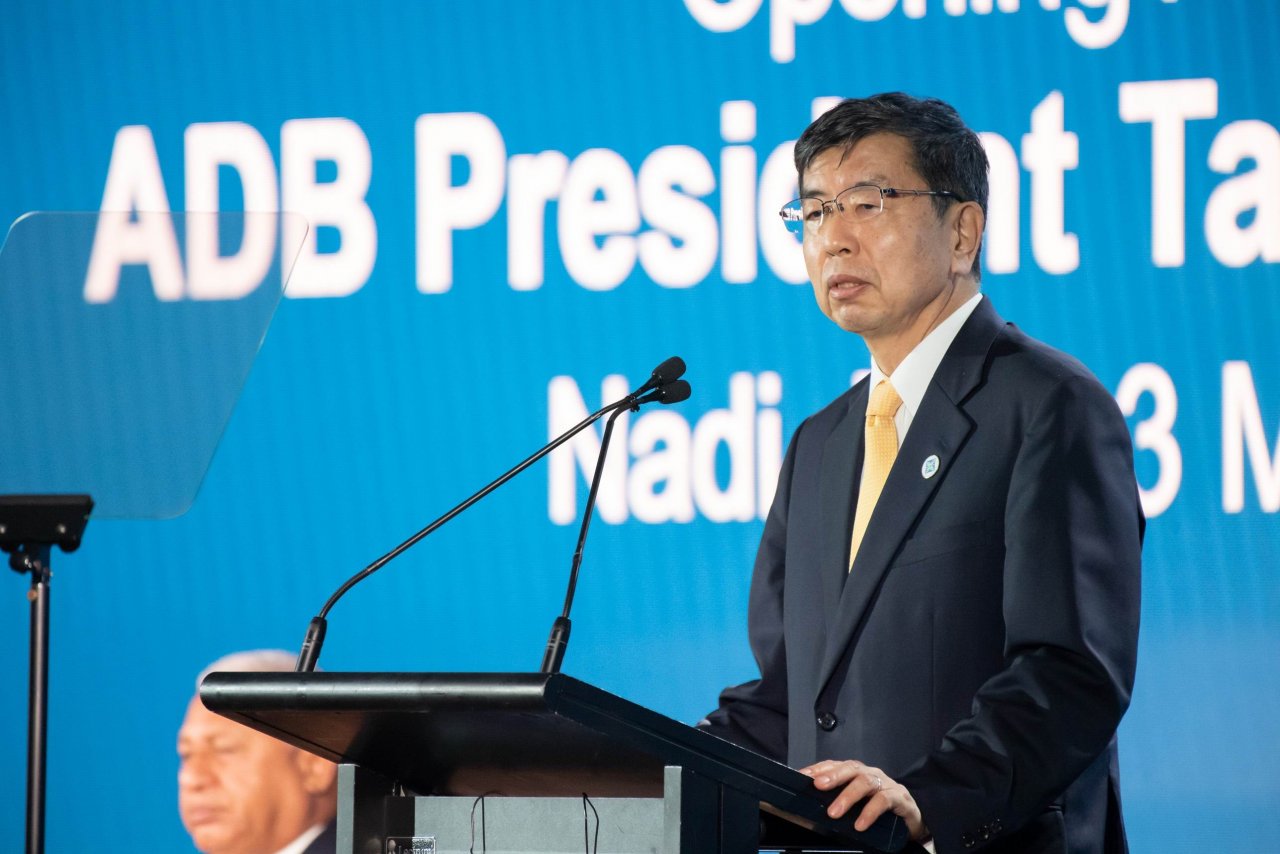Asia Pacific’s economy to double in 12 years, ADB chief says
04 May, 2019

Driven by stronger domestic consumption and larger investment inflows into the region, the economy of the Asia Pacific region is expected to double in the next 12 years, according to Takehiko Nakao, president of Asia Development Bank (ADB).
At the grand opening of the 52nd ADB Annual Meeting on Friday, Nakao said the region would expand by 5.7 per cent this year, and the economy could grow double if the region continues to grow 6 per cent annually. “Excluding the four newly industrialised economies (Hong Kong, Korea, Singapore and Taipei), Asia and the Pacific is expected to grow 6.2 per cent this year,” he said. According to the bank’s chief, China is projected to grow at 6.3 per cent for the year while India’s growth will remain solid at 7.2 per cent. Southeast Asia will sustain growth at close to 5 per cent until 2020. In Central Asia, growth will be 4.2 per cent this year. Despite an earthquake in Papua New Guinea last year, the Pacific’s growth is projected to rebound to 3.5 per cent this year.
“Economic growth in the region remains solid, while there is much discussion about a slowdown and uncertainties in the global economy,” he said. “In some countries, growth is even accelerating. Countries need to continue to pursue prudent macroeconomic policies, implement structural reforms, and invest in human capital and infrastructure.” According to Nakao, Maintaining open trade and investment regimes is key to vibrant and sustainable growth. In this respect, the ongoing efforts by Asian governments to promote new multilateral trade agreements within the region and beyond are encouraging. “Trade tensions remain a concern.
If tensions escalate, they could seriously undermine consumer and investor confidence and weaken growth in the region,” he said. “We are now taking steps to implement our Strategy 2030. We are preparing seven operational plans as well as action plans for private sector operations and knowledge management. We are also developing a new corporate results framework to measure progress in implementation.” At the opening ceremony, Nakao unveiled six core areas ADB will prioritise in the adoption of its Strategy 2030. He stressed the importance of key areas - addressing poverty and reducing inequalities, gender equality, climate change, regional integration, private sector operations, and effective use of concessional resources.
“We will strengthen our support to the poorest and most vulnerable countries in the region including those in fragile and conflict-affected situations and many small island developing states,” he said. “We are increasing our operations in health and education. We will develop a stronger pipeline of projects integrating gender equality designs into a wide range of operations, including transport, energy, and urban infrastructure.” By 2030, at least 75 per cent of ADB’s operations will support mitigation and adaptation efforts, Nakao said. “For countries that are most vulnerable to climate change, we will provide a wide range of assistance.
We will also continue to foster regional cooperation and integration. Building on ADB-led subregional cooperation platforms in the Greater Mekong Subregion, Central Asia, South Asia, Southeast Asia, and the Pacific, we will further enhance regional connectivity through transport, energy, and trade facilitation,” he said. Nakao said the lender would bring its private sector operations closer to clients by outposting more staff to resident missions. To him, ADB will open an office in Singapore by the end of this year to facilitate engagement with private sponsors and financiers. In regard to using concessional resources, he pledged to continue the lender’s support in poverty reduction, gender equality, climate actions, and disaster prevention and responses.
ADB will develop a detailed proposal for the next Asian Development Fund replenishment for grant support covering the period 2021–2024. “We will also continue to seek strong donor support for our trust funds. We are also mobilising concessional resources from bilateral and multilateral partners including the Green Climate Fund and Global Environment Facility,” he said. Nakao also stressed the importance of two key topics -ocean health and sustainable tourism. “Our oceans are in danger. Increasing water temperatures, untreated wastewater and plastic pollution, and unsustainable fishing practices are all damaging the oceans,” he said.
“If we do not act now, by 2050, 90 per cent of the region’s coral reefs will be dead, and there will be no commercially exploitable wild fish stocks left.” Last year, nearly 350 million international tourists arrived in Asia and the Pacific countries. This number has more than doubled since 2005. “We can make tourism more human and inclusive by investing in the right skill sets of people. We must also pursue sustainable tourism by protecting nature, the environment, cultural heritage, and local communities,” he said. “Tourism is important for job creation due to the labour-intensive nature of its services. As robotics and artificial intelligence become more common, there will be a natural desire for more human interactions and seeing real things.”
TAG(s):
